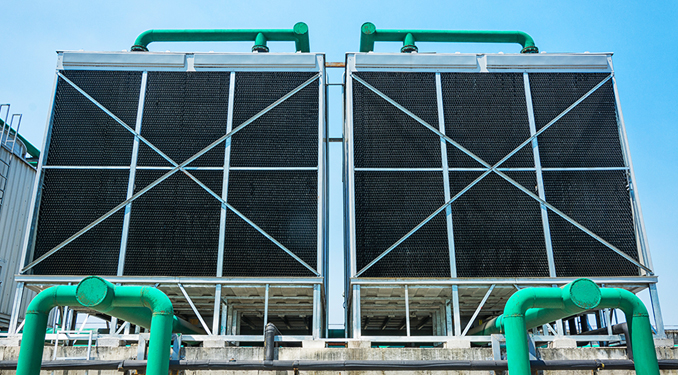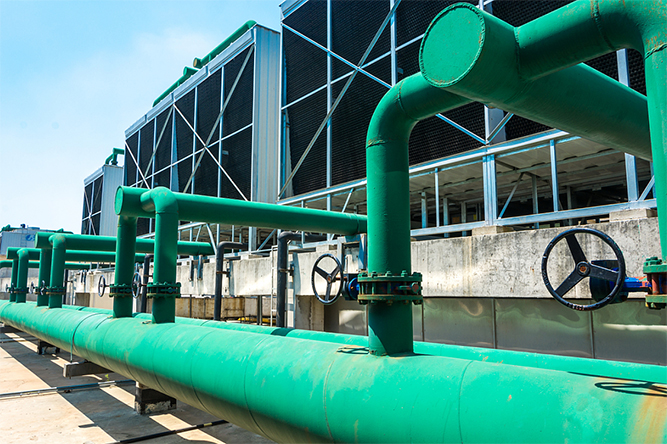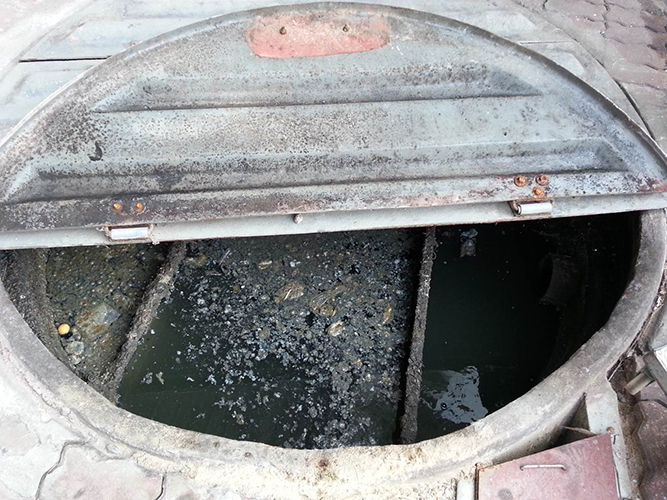
![]() Cooling Tower Bleed-Off / Blowdown คืออะไร?
Cooling Tower Bleed-Off / Blowdown คืออะไร?
การ Bleed-Off/ Blowdown ในหอระบายความร้อน คือการระบายน้ำส่วนที่มีความเข้มข้นของแร่ธาตุสูงออกจากระบบหอระบายความร้อน และเติมน้ำใหม่เข้ามาแทนที่
หอระบายความร้อนทั่วไป (500 ตัน ทำงานตลอด 24 ชั่วโมง 365 วันต่อปี) จะมีการระบายน้ำทิ้งมากกว่า 3.9 ล้านแกลลอน หรือ 14.7 ล้านลิตรต่อปี ซึ่งหมายถึง มีประมาณน้ำทิ้งมากถึง 10,800 แกลลอนต่อวัน หรือ 450 แกลลอน / 1,700 ลิตรต่อชั่วโมง หรือเทียบเท่ากับเราทิ้งน้ำ 7.5 แกลลอน / 28.4 ลิตรต่อนาที จากระบบหอระบายความร้อน ตลอด 24 ชั่วโมง 7 วันต่อสัปดาห์

ไม่เพียงเท่านั้น สิ่งที่สำคัญไม่แพ้การสูญเสียน้ำไปหลายล้านแกลลอน ก็คือ น้ำที่ Bleed-Off/ Blowdown เหล่านี้ มีสารเคมีที่เป็นพิษ ซึ่งมีสาเหตุหลักมาจากการบำบัดน้ำด้วย liquid biocide นั่นหมายถึง ในตัวอย่างข้างต้น หอระบายความร้อน 500 ตัน ต้องระบายน้ำทิ้ง 3.9 ล้านแกลลอนที่มีสารพิษ ลงท่อระบายน้ำทุกปี

อย่างที่คุณเห็น การประหยัดน้ำในหอระบายความร้อน ไม่เพียงแต่ช่วยอนุรักษ์ทรัพยากรน้ำที่มีค่า แต่ยังป้องกันมลพิษได้อีกด้วย
Cooling tower bleed-off/blowdown is the flushing of a portion of high mineral concentration cooling tower system water down the drain, while simultaneously replacing it with fresh water.
A typical cooling tower (500 ton, running 24 hrs day. 365 days per year) will flush over 3.9 Million gallons 14.7 million litre of water down the drain each year. This breaks down to approximately 10,800 gallons of waste per day, 450 gallons 1,700 litre per hour, or 7.5 gallons per minute being flushed down the drain from the cooling tower system 24 hours a day, 7 days a week.
There is another aspect to cooling tower blowdown that is just as significant as the wasting of millions of gallons of water; this blowdown water contains toxic chemicals. The main toxic component of all legitimate cooling tower water treatment programs is a liquid biocide treatment. So in our example above, that 500 ton cooling tower is flushing 3.9 Million gallons of cooling tower water containing this toxic biocide down the drain every year.
As you can see, cooling tower water conservation is not only important for general water conservation, but also from a pollution prevention standpoint
